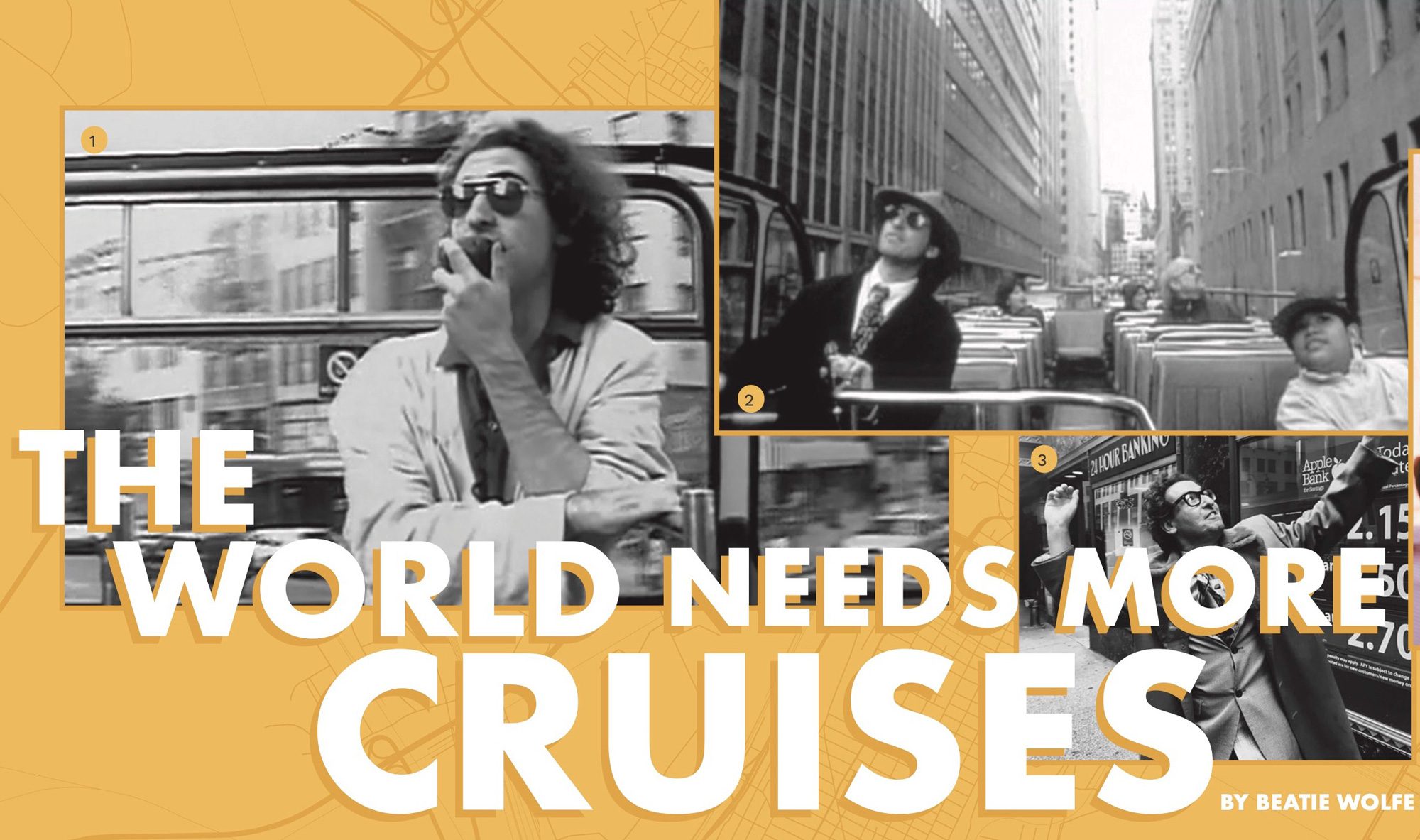
An Interview with Tour Guide Timothy Speed Levitch
By Beatie Wolfe
Published Issue 095, November 2021
A radical much-needed philosophy to shake us out of our commuter consciousness all the while making love to the present moment.
There are few transportation systems that aren’t about getting you from point A to point B, let alone ones that open up new portals of your mind, ways of seeing and transport you to another dimension entirely. But if you’ve been lucky enough to have taken a ride with Timothy Speed Levitch then you’ll never see travel in quite the same way again. Because with Speed, it’s not the destination, it’s the Cruise.
Psycho-geographer Timothy Speed Levitch is a tour guide operating on a whole multidimensional bus of his own. Cruising with Speed, you’ll encounter luminous philosophical insights where you’d least expect them as he connects with the psyches of famous landmarks and celebrates the monumentally ignored monuments. Because for Speed, it’s all about making love to the present moment, illuminating the mundane, transforming it into magic.
Speed is a tour guide for the unseen, the unheard, the unloved, all that we miss along the way. He was also the subject of Bennett Miller‘s 1998 documentary The Cruise and has appeared in multiple films and series, including Richard Linklater’s Waking Life and Up to Speed. His poetic and philosophical works have been published in numerous books.
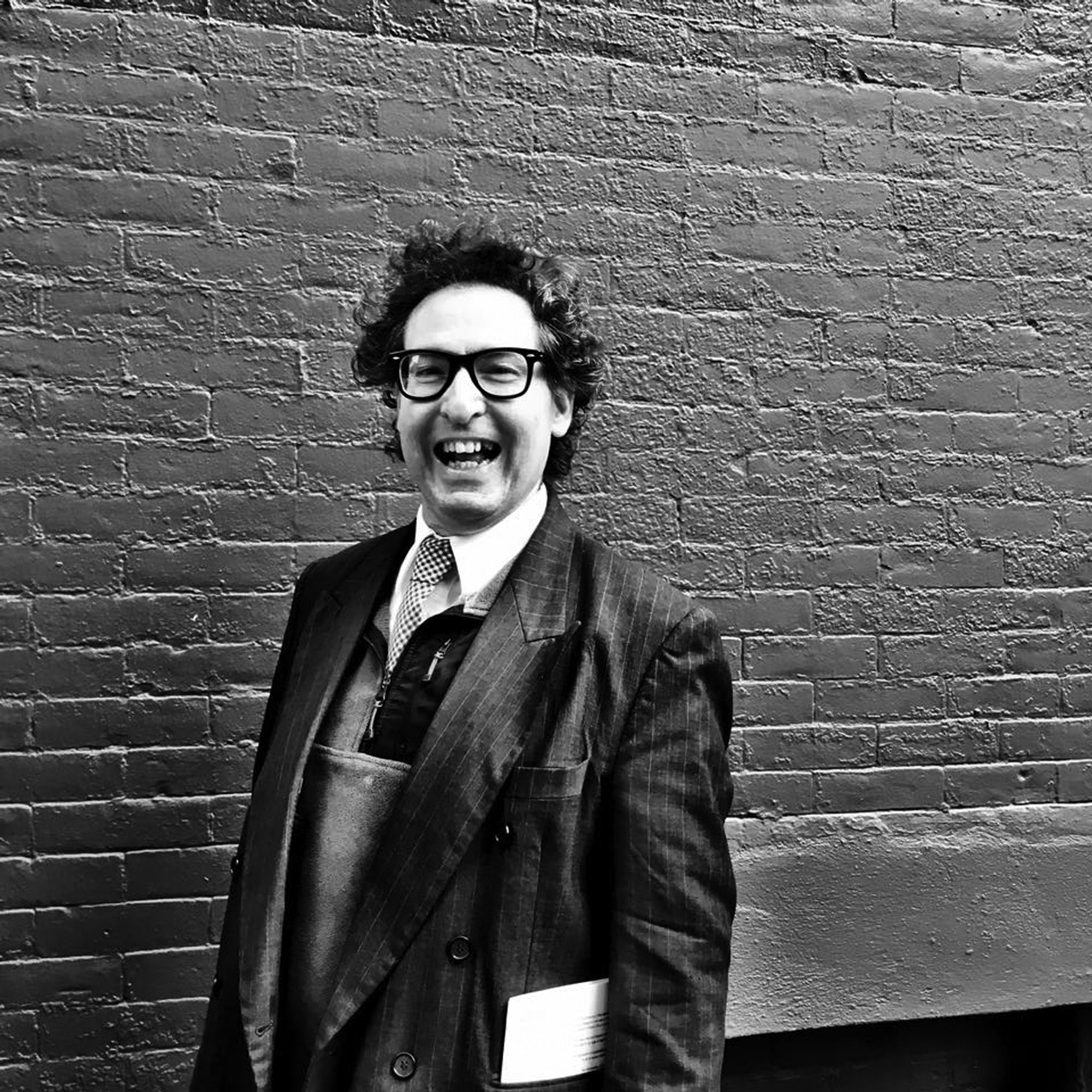
Beatie: That independent spirit and originality that you’ve managed to keep alive, which is incredibly difficult to do in this world — did you always feel like you had to listen to yourself and trust yourself, and were you always such an empathetic being?
Timothy: Yeah. It’s a beautiful question, Beatie: the artist’s struggle between empathy and self-absorption and I’m so glad you brought it up. Empathy is such an amazing gesture and medicine, and it’s the only way. It’s the only sane way. I like to say about empathy, “Empathy in case you think I’m not taking you seriously, by the way I’m taking you intravenously.”
Beatie: I love it. And when did you realise that being a tour guide actually felt like the perfect landing point for you considering all your other skills or things that you loved and things that you were interested in?
Timothy: I was in college and somebody in passing said to me, “You know, you’re going to have to get a job.” And that was one of the most confusing moments of my life. And confusion is the electricity that runs through the living. And I was quite despairing. I thought, how am I ever going to be constructive to society? It just didn’t seem likely, it seemed unlikely. I was after all a dramatic writing major. So I sat down and tried to figure out something that I thought I could do right out of school. And it was a beautiful nexus and epiphany that a tour guide is all about the city and history and performance. So that really drew me to it. And then the direct experience was fantastic.
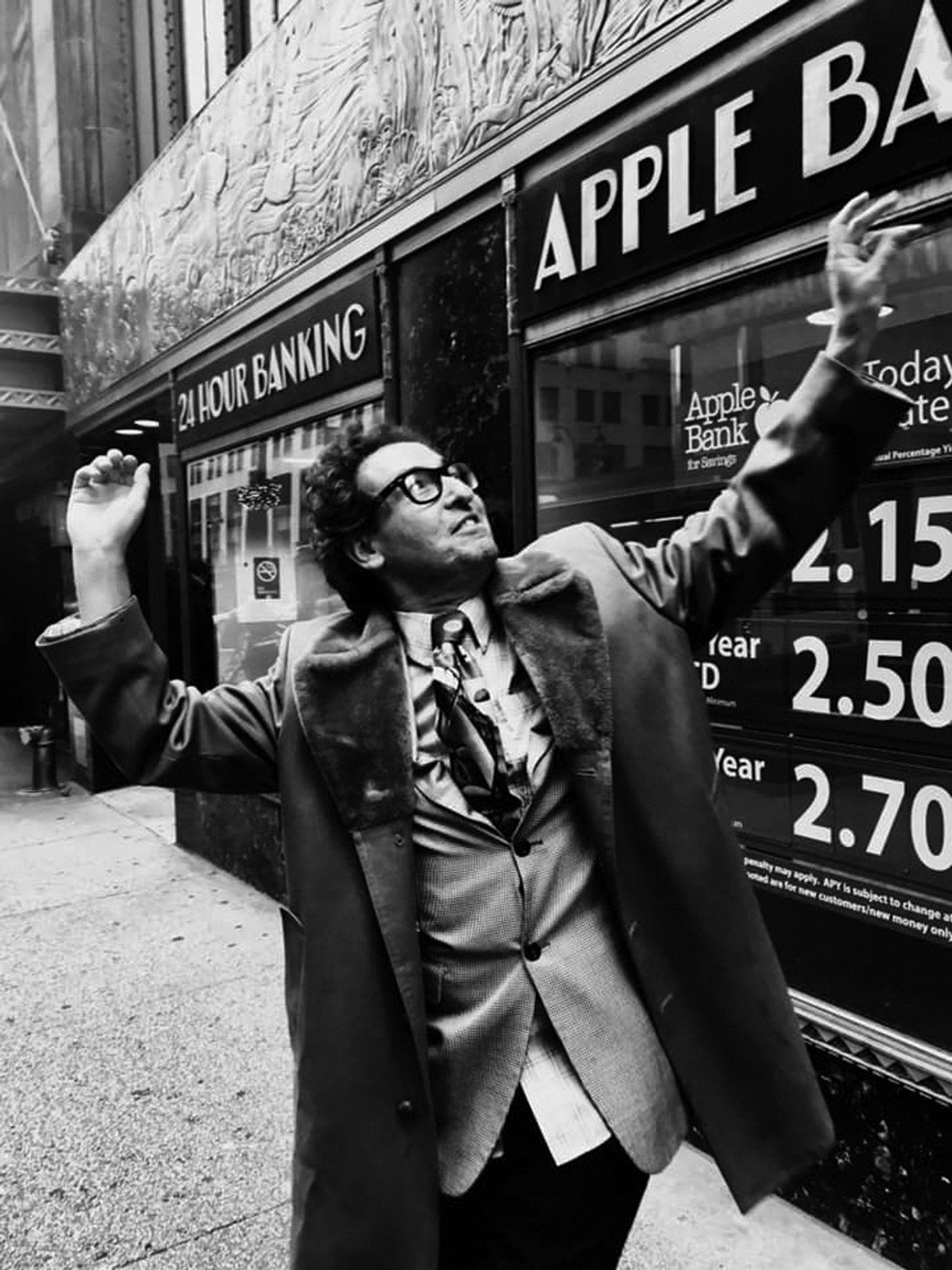
Beatie: And that was when you were 22 right? When you got your license. How did your tour evolve? Because you talk about combining history, location, theater, etc., but I think a big one is also philosophy and the unseen: that which we miss in all of our busy-ness, but also literally the unseen, other dimensionalities that you celebrate in such a poetic way. Was that something you’d always been aware of or was that something that evolved?
Timothy: It’s definitely true, Beatie. I showed up on the double-decker bus, raring to go. I was very anxious because someone passed me the mic so to speak and I was very excited to have my own cabaret. And some of the double-decker buses today are structured a little bit differently. They’re longer. And the tour guide sits with everyone and has headphones almost like you’re listening to a live narration, which is cool, but it’s just different. The double-deckers back in those days were all so that I was standing with the microphone right over everyone. It just had a natural cabaret feeling.
Beatie: Yeah, you could turn it into whatever you wanted.
Timothy: And with an audience that could not escape. And an international audience. That was what was so fantastic. I mean especially in New York, because you’re just meeting people from every habitable continent of the world on a daily basis.
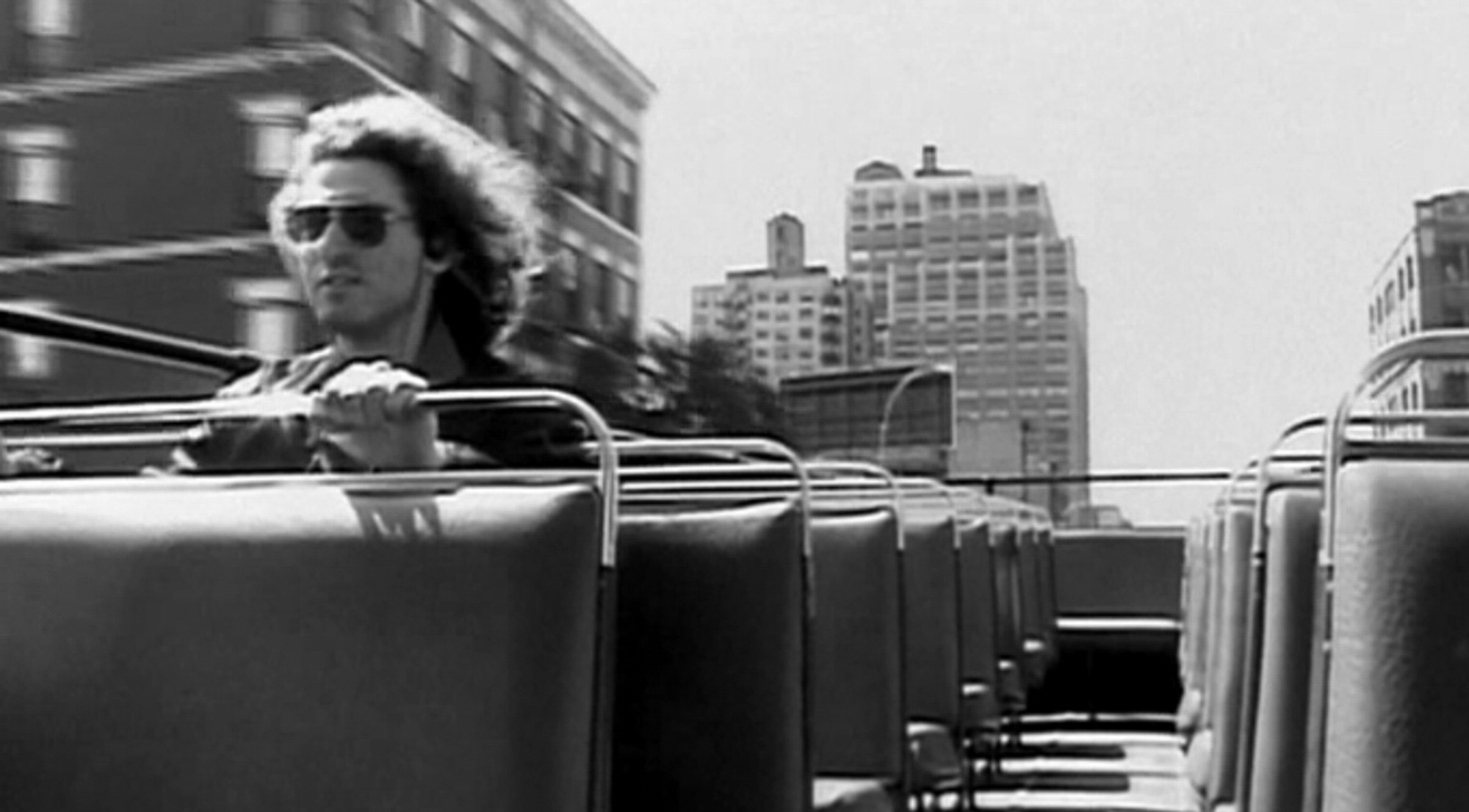
Beatie: And also within that you were keeping your creative freedom alive by being a tour guide. Was that always very important?
Timothy: Oh yes, and the double-decker bus was a fantastic opportunity to do that. Again it’s easier to say in retrospect, but it was kind of like oral dramatic writing. In dramatic writing class, it’s all about scenes and so building scenes was definitely on my mind. That’s what I had just been doing in school.
Beatie: And looking at the kind of unique quality of what you do, what particularly drew you to celebrate those places and people and things and monuments that were usually overlooked by your average tourist. You describe it as illuminating the mundane. Why is the mundane your central landmark?
Timothy: Perhaps part of the answer is art. The illumination of the mundane is art itself. But also, I do feel that any city is a teacher, bestowing its life lessons upon us through its daily machinations and its history. Deciphering those life lessons as they’re coming in is all the fun. It’s an illustrious discography. And I definitely get the feeling that down the middle of any sidewalk in any city is an invisible fork in the road. And that visible fork in the road is an invisible fork in the road of consciousness. I’ve often been giving a New York Midtown rush hour tour and it’s just an attempt at finding that fork in the road, I suppose. And the difference between “commuter consciousness” and what I might call “cruising consciousness” is that commuter consciousness is very much about the fanaticism of getting from point A to point B and that moment when our urge to get to our destination becomes even more alive than ourselves.
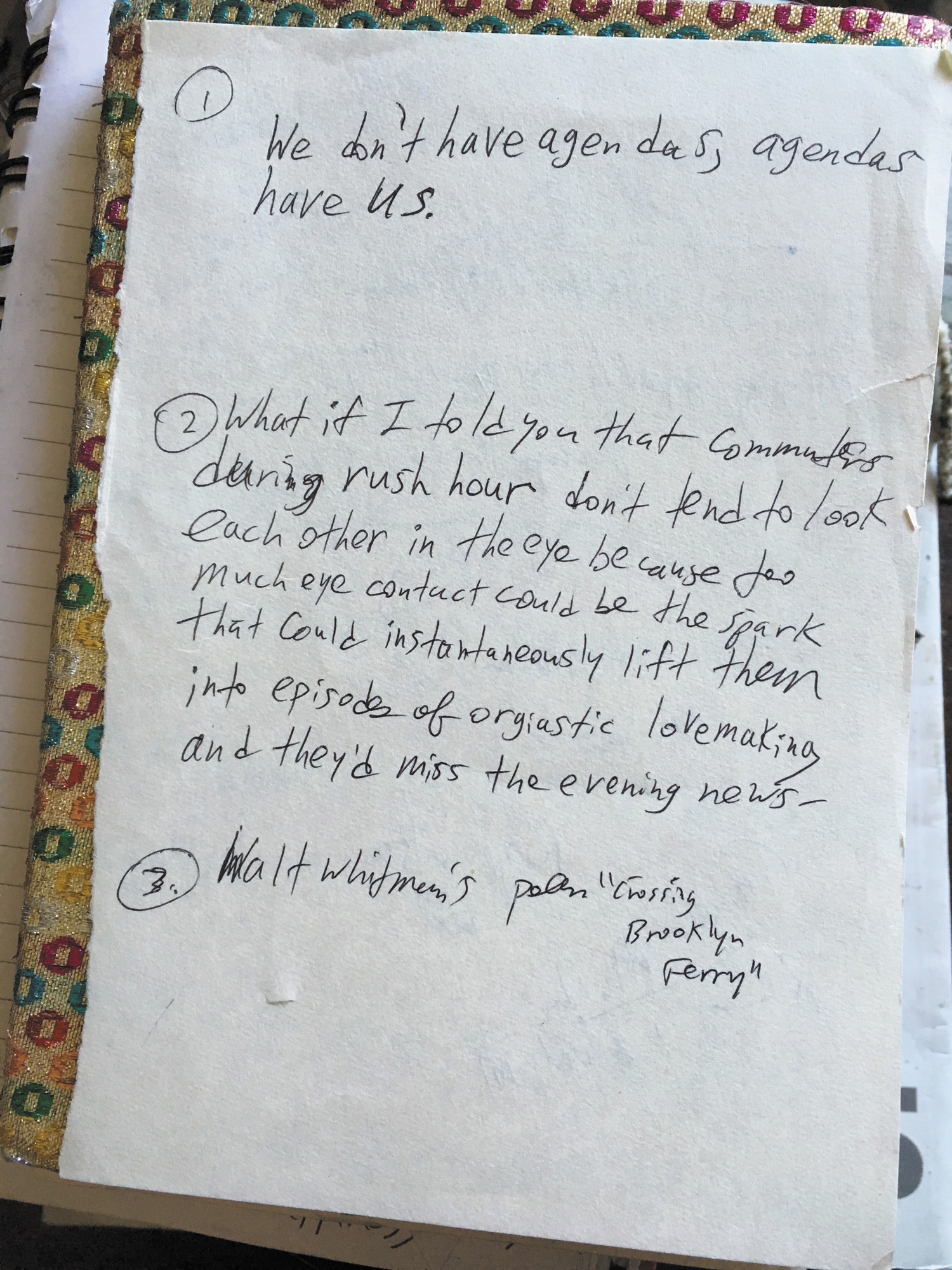
Beatie: I completely agree. We’re so goal-orientated and the magic, which is simply being, is lost in all of that. And what we consider the background experience should really be foreground and vice versa. And I feel like the spirit of the cruise is very much about that presence, being a field of awareness, and thinking about time and space with a totally different expanded view and not that linearity that we’re also used to. So moving to The Cruise, the documentary made by Bennett Miller about you, what was that like? Was that an odd experience to be the subject of a documentary?
Timothy: Being a documentary subject is a unique kind of predicament for sure. I really appreciate your help on this, because it’s really confusing being a documentary subject and especially early on in life.
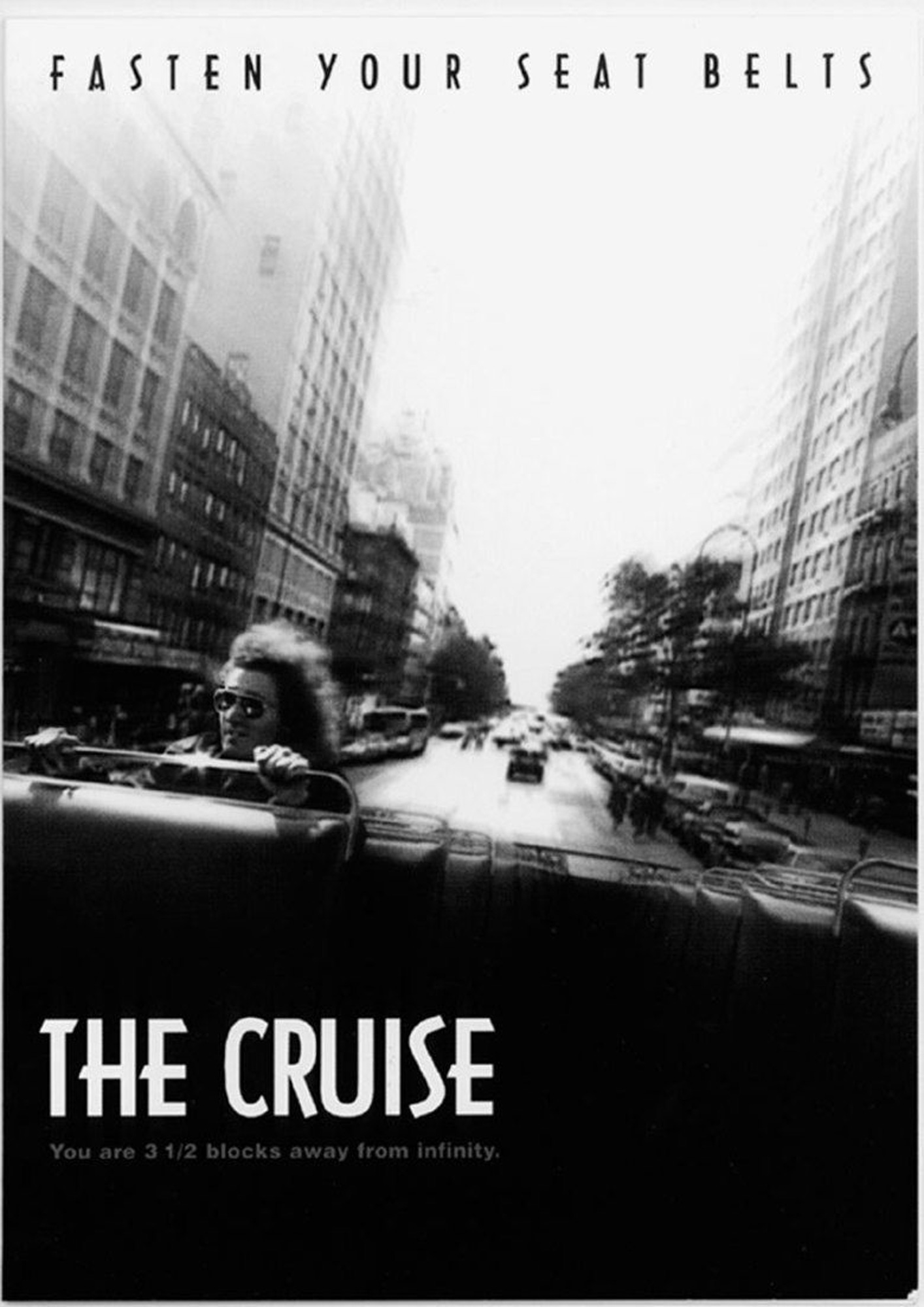
Beatie: Within that process, did you learn anything about yourself in making that documentary?
Timothy: Around the time that the film was playing at the Angelika Film Center downtown in Manhattan, I was on the sidewalk about to live out what would seem to be kind of a dream come true when a lady turns to me and says, “Aren’t you that guy in the documentary?” And it was a great New York moment, very edifying, to have this austere beautiful elegant lady address me. How often, even in your New York life, does somebody just turn to you on a street corner and address you at all? Let alone identifying you in any way? It was really exciting. She says very lucidly, not impassioned: “You’re a parasite. You suck. You take from our society and you don’t give anything back.” And I said to her: “Look, we all have a place in the food chain.” So I suppose it was awkward to be portrayed as an ambassador of uselessness in the middle of such usefulness. Although obviously there is a percentage of the film where I’m at work.
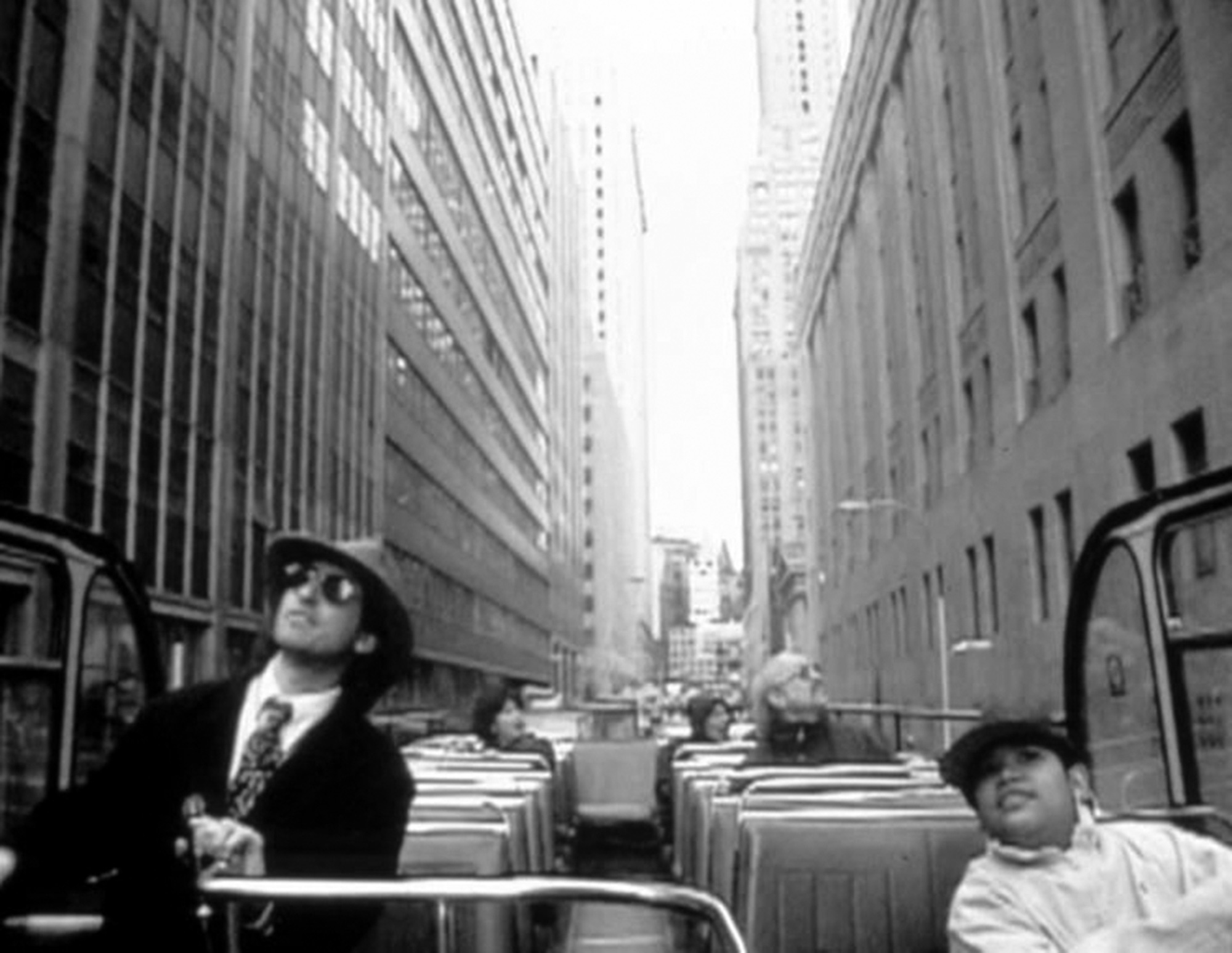
Beatie: Yeah, I think you can just throw that one away, seriously. To me, it’s the most wonderful exploration and meditation on the power of presence and being in the moment and that’s not a useless thing, it’s actually what we’ve really lost touch with. So someone like that probably doesn’t see it as being particularly useful because considering things just for their usefulness, is not the way to go about life.
Timothy: I knew you would help me. Thank you, Beatie. And yeah, it’s a joy to hang with the like-minded.
Beatie: Yeah, I’d not take that one home at the end of the day. And speaking of home, the whole time you were shooting that you were sort of cycling around different friends’ couches right?
Timothy: It was tragic yet hilarious, but it was the decline and fall of my own finances and growing out of that world where one could luxuriously couch surf for a while after school as I had so many friends around who were on board for the couch surf, and I always thought of myself as contributing to the atmosphere. And as RuPaul said, you always want to bring something to the birthday party. So in any case, I, being quite suddenly poor, was also then a tour guide, which is exciting, however not lucrative. And even when I began working on the film, The Cruise, it was at a time when I was making $7 an hour before taxes. And my family had just spent a great deal of money on my dramatic writing education at NYU. So I was a living theatricality, trying to find my much needed niche in the world.
Beatie: Well I feel like if you can activate one ounce of awareness in one person, or make them see something that they didn’t see or think about something in a different way, or appreciate the beauty of something, well that’s a huge contribution. Even a tiny amount of that is rare and magnificent, but you’re doing that for so many people in a way that stays with them, which is endangered in today’s world. So yeah, I really think your contribution is not to be questioned.
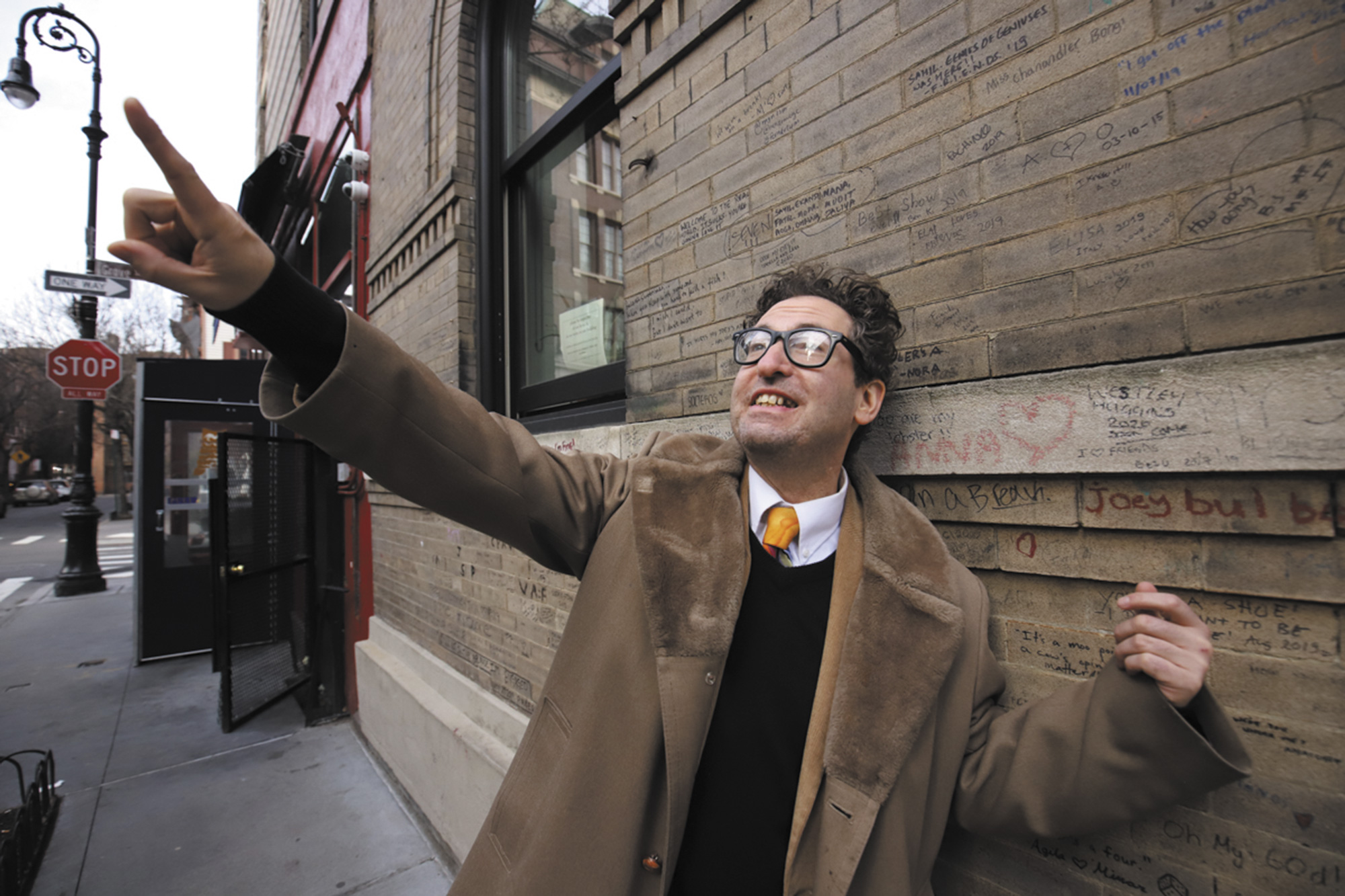
Timothy: Well I’m speechless. I thank you. I totally grew to that beat, you know, and the awareness and appreciation of beauty, it takes me back to that invisible fork in the road and if we can take the time to prioritize the appreciation of beauty, which is a natural antidepressant.
Beatie: You talked about the essence of cruising as being, really appreciating the beautiful and the biggest and smallest things. What else would you say is essential to the cruise?
Timothy: Well over time, I’ve realized it’s a contest between what I might call the “redefiners of joy” and the “blower shitter uppers.” And even now it seems like the blower shitter uppers have an ability to box in the conversation. The blower shitter uppers are often utilizing gaslighting. And the fact that that’s becoming illuminated, as a subversive form that the blower shitter uppers need to be utilizing, is another subtle but important example of the human race getting smarter.
Beatie: Do you think we’re getting smarter?
Timothy: It’s hard to say, but the war of the consciousnesses brings me to this feeling that the more we can understand gaslighting and put it in its proper place is a deep liberation, not only for humanity, but for its present tense. Gaslighters are the enemy of the present tense.
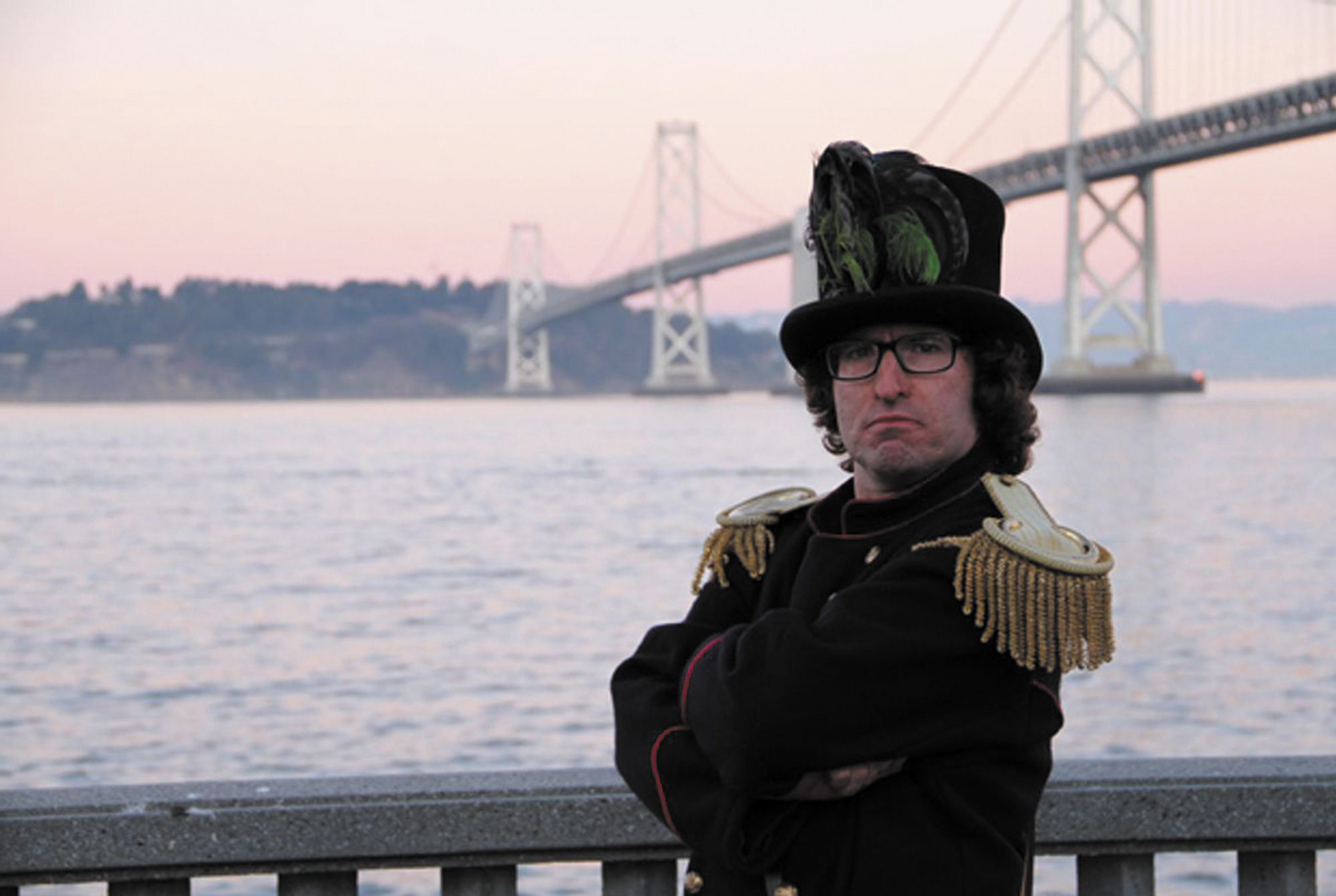
Beatie: Yeah, I think that’s a really interesting and true statement. Maybe we’re getting smarter, but maybe not. I think one of our big downfalls is narcissism and how much we see ourselves as separate from the interconnectedness of everything.
Timothy: To bring it back to the intersection for a moment. Any operable intersection in any city is some sort of dramatic exhibition of that very human interconnectedness. I mean, it is a drastic form of egalitarianism to levy out waiting, the amount of time waiting, just so that everybody can get going.
Beatie: Yeah and we don’t want to wait for anything. It’s all instant gratification and our sense of time is increasingly short-termist at a time we most need to be adopting the long-now principle.
Timothy: Perhaps the Earth will remember us, or we would be remembered eventually as a short, explosive, exciting time in the Earth’s history. We were an exciting species that learned how to take advantage of the naturally secreted liquids in the planetary. But we were short-lived and that’ll be our chapter. Human beings’ 15 minutes of fame.
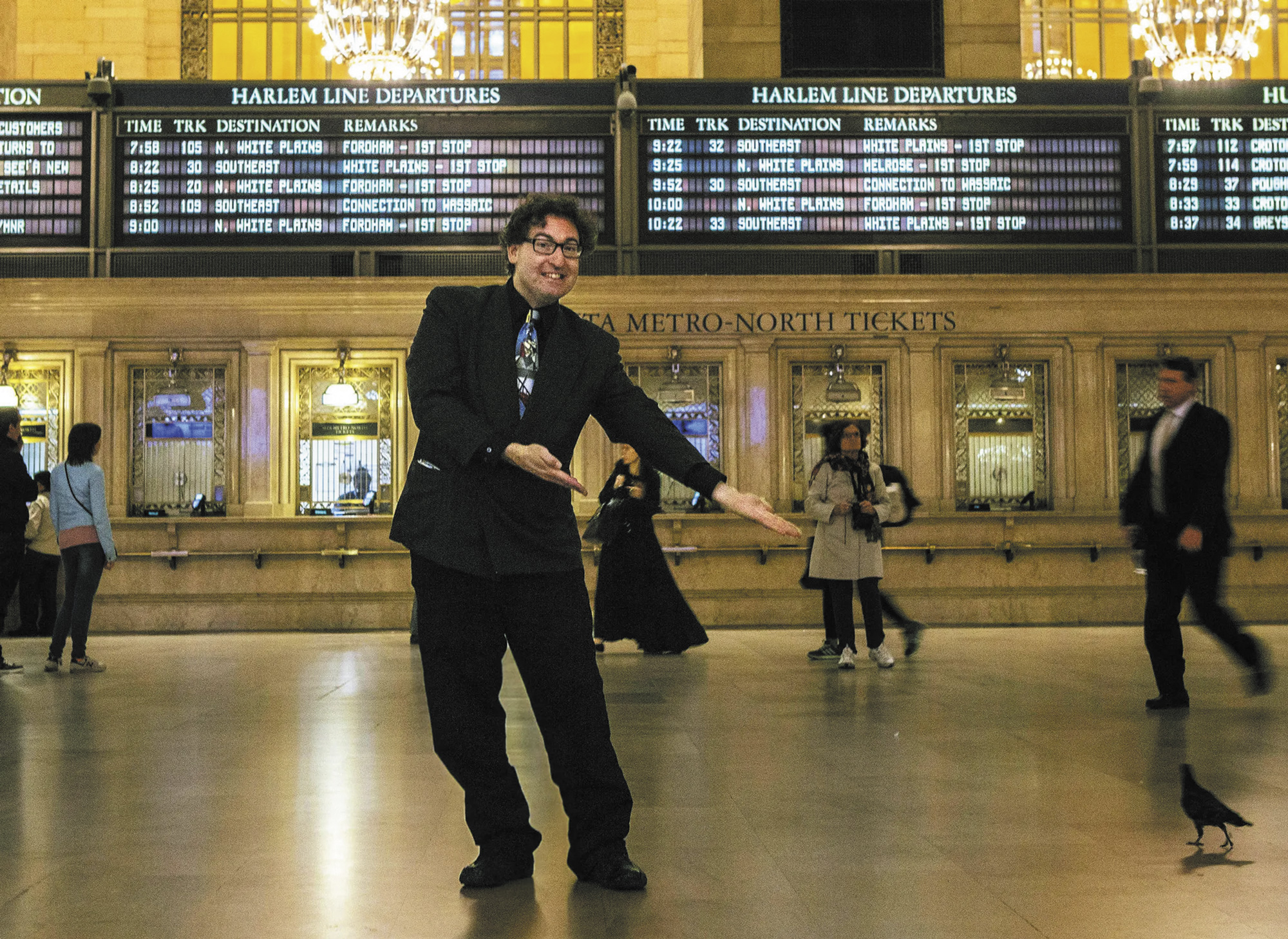
Beatie: Is there any particular monument or building or structure that feels like it’s very much a kind of part of you?
Timothy: Of course I’m fickle, but lately definitely the Flatiron Building. What a beauty. I think part of what stirs me about the Flatiron Building is that it’s awkward. And yet it’s kind of proving right before our eyes, that awkwardness can be precise and beautiful. Awkwardness has always been a theme because when things are awkward, something’s happening. And I think the Flatiron Building would be the first one to tell you that.
Beatie: Maybe that’s also why we are where we are, because actually being uncomfortable, being in difficult situations or being confronted with the awkwardness of life, it’s really often the precursor to a breakthrough or to something shifting or something expanding. But we’re so uncomfortable with being uncomfortable. And I think that’s actually where a lot of the magic is. And you’ve said that “The world is an exam to see if we can rise into the direct experiences and that life understood is life lived.” What do you think the opposite of life is?
Timothy: I think it is the nullification of reality as it’s unfolding, the nullification of our presence tense, which is gaslighting and it forms the pollution of the common stream of our thinking. Sometimes it feels like what gaslighting is is a 5-year-old self’s response to an unfolding reality not going your way in a way. Cynicism trains us to pull in and out of an afternoon, the way you do a stock, whether it’s going your way or not. It’s just a natural way. And the cynicism helps us become kind of stock market dealers and specialists of the afternoon, pulling in and out of participation. And I totally grew to that.
Beatie: Yeah, creativity and destruction, those polar opposites. We will continue to celebrate the creative side as much as one acknowledges the other, because that’s what keeps one alive right?
Timothy: Truly, and today is just another reminder that the human race is the most creative species the planet has ever witnessed. So it’s great to be on this big blue ball with you, Beatie, doing just that.
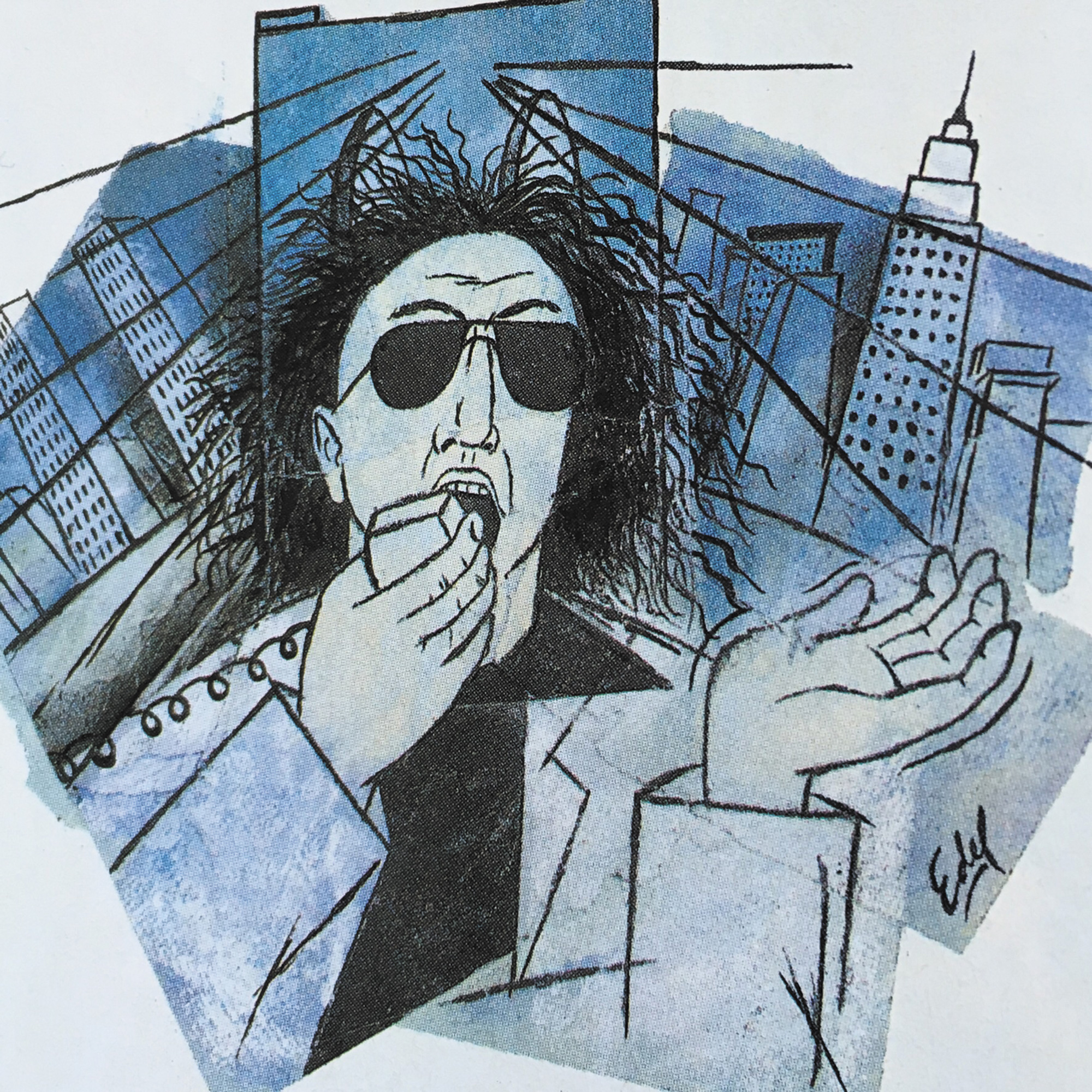
Speed offers tours of Greenwich Village, Midtown Rush Hour, Wall Street & Central Park for 2 or more people. Head to his site to book your reservation here and learn more about Speed: speedlevitchonline.com | Keep up with him on Instagram, Facebook & Twitter.
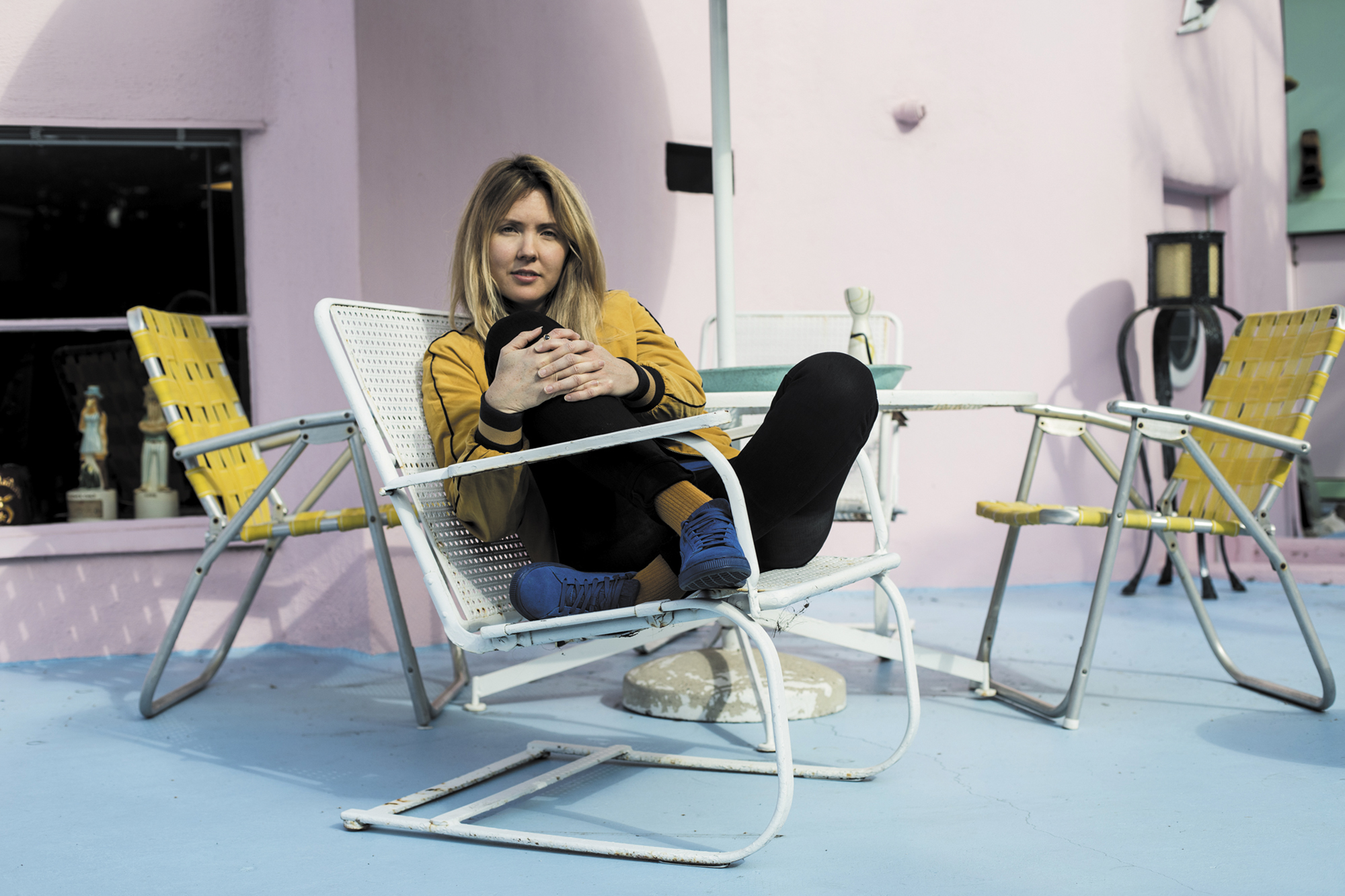
Beatie Wolfe is a London-born, LA- based artist and innovator who has beamed her music into space, been appointed as a UN Women Role Model for Innovation and held a solo exhibition of her album designs at the V&A Museum. Beatie’s environmental protest piece will be at the UN’s Climate Change Conference (COP26) this month. Beatie will also be speaking and performing. See more at beatiewolfe.com and on Instagram.
Check out Beatie’s September Birdy install, The World Needs More Libres w/ Linda Fleming, and head to our Explore section to see more of her work.

Pingback: Postcards For Democracy by Mark Mothersbaugh & Beatie Wolfe - BIRDY MAGAZINE